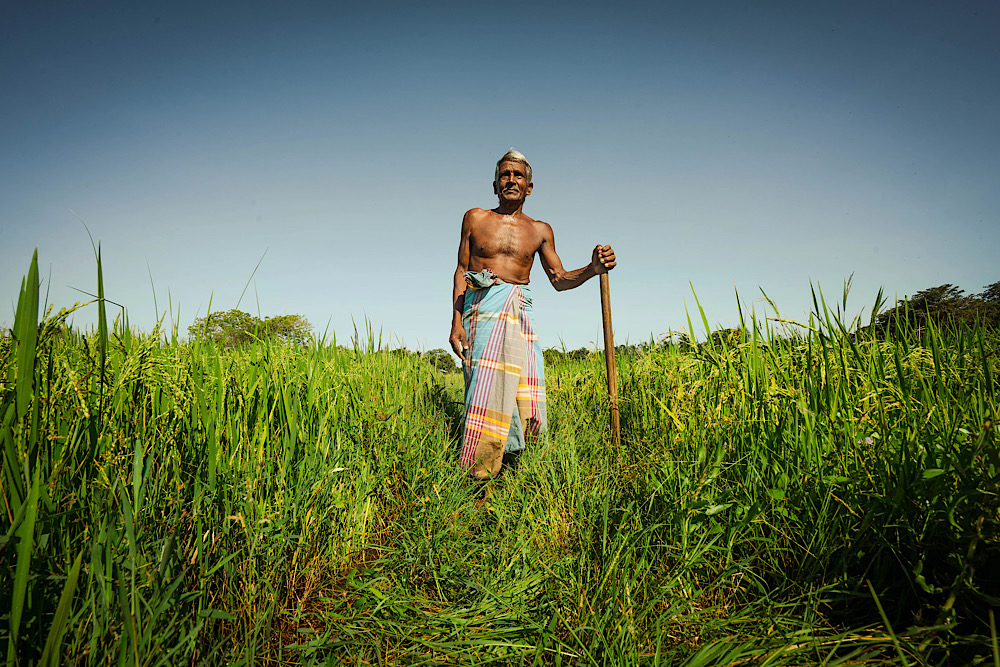Water crisis and broken promises: farmers vs the government
Farmers call for the release of water from the Samanala dam. At least 66,000 families who rely on water from the Udawalawe reservoir for farming and personal use are at risk. Over the past few months, the government has hiked electricity tariffs to avoid power shortages, but prospects are not good.
Colombo (AsiaNews) – A group of Sri Lankan farmers staged a protest near the Samanala Dam, calling for the release of water from the Samanala hydroelectric dam[*] and the Udawalawe Reservoir in Ratnapura district (Sabaragamuwa province) to irrigate rice fields.
Faced with the protest, the authorities have deployed the Special Task Force (STF), a police tactical unit, to the heavily protected dam to prevent possible intrusions by protesters.
More than 66,000 families who rely on water from the Udawalawe reservoir for farming and personal use face extreme hardships.
According to the Ministry of Agriculture, almost 26,300 hectares of rice fields that use water from the Udawalawe reservoir are at "risk of being destroyed" for the lack of irrigation. Releasing water from the Samanala reservoir could save part of the production.
If water is not released, total damage to paddy cultivation could be as high as 18 billion rupees (US$ 56 million) and impact supplementary crops, for a total of 30 billion rupees (US$ 93 million). This could lead to food shortages.
Meanwhile, sources in the Ceylon Electricity Board (CEB) warn of power cuts if water is released. Most government ministers want to keep the water back to maintain power supplies.
Even so, the CEB will be able to guarantee supplies only for the next 10 days; alternatively, it will turn to emergency power purchasing or impose power cuts to manage the situation
“Currently, water levels at hydropower reservoirs have reached the levels they dipped to in 2019, the worst in recent times,” said senior electrical engineer Samantha Kahawita, speaking to AsiaNews.
“If there is no rain even towards the end of September, the power sector too could reach a crisis situation, which would affect the entire national grid,” he added. “Although, we had some rain in August 2019, the forecast this year is far less promising.”
For senior engineering academic Sampath Malalasekera, “in its reluctance to release water to farmers for agricultural purposes, the government is also weighed down by its own rhetoric from earlier this year.”
“Due to its long, drawn-out battle with the power sector regulator Public Utilities Commission of Sri Lanka (PUCSL) over a 66 per cent electricity tariff hike, Power and Energy ministers, including Minister Kanchana Wijesekara, insisted that the government would be able to provide uninterrupted power once the tariff hike was approved.”
The government justified the hike saying that it would end the power cuts that lasted months last year. At present, it seems to be moving in the other direction and heavy cuts are expected.
"Currently the water level in the Udawalawe reservoir has decreased to 1.7 per cent and the Samanala reservoir is at 11.7 per cent,” Sampath said.
In response, the All Ceylon Farmers' Federation yesterday filed a complaint with the Human Rights Commission of Sri Lanka (HRCSL) to defend the rights of farmers affected by the problem.
[*] Part of the Samanala Reservoir Project (Samanalawewa Project).
02/07/2024 19:29
29/05/2019 17:46







.png)










